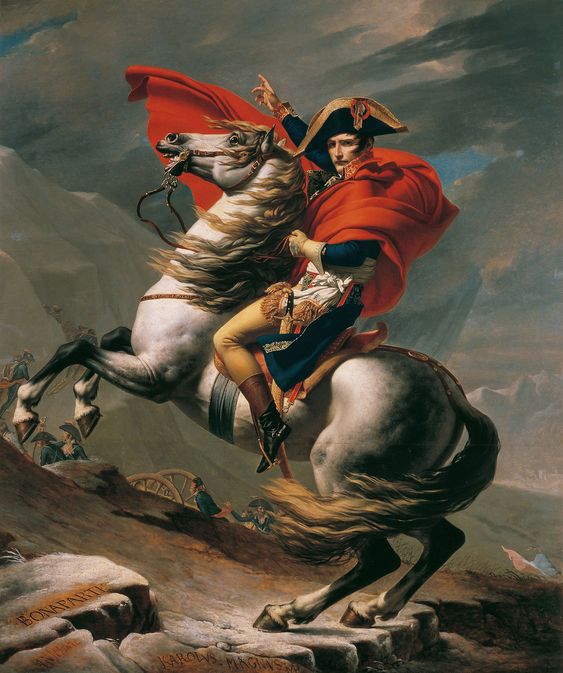THE OTHER DAY WHEN YOU WERE SPEAKING ABOUT COMING CLOSER TO YOU, I WAS AWARE THAT I STILL FEEL A THIN ARMOUR AROUND ME THAT KEEPS ME FROM COMING CLOSER. THIS ARMOR IS INCONGRUOUS WITH MY OPENNESS TO YOU. I DON’T KNOW WHERE IT IS COMING FROM. PLEASE HELP ME TO MELT IT AWAY.
Everybody has that kind of armour.
There are reasons for it. First, the child is born so utterly helpless into a world he knows nothing of. Naturally he is afraid of the unknown that faces him. He has not yet forgotten those nine months of absolute security, safety, when there was no problem, no responsibility, no worry for tomorrow.
To us, those are nine months, but to the child it is eternity. He knows nothing of the calendar, he knows nothing of minutes, hours, days, months. He has lived an eternity in absolute safety and security, without any responsibility, and then suddenly he is thrown into a world unknown, where he is dependent for everything on others. It is natural that he will feel afraid. Everybody is bigger and more powerful, and he cannot live without the help of others. He knows he is dependent; he has lost his independence, his freedom.
And small incidents may give him some taste of the reality he is going to face in the future.
Napoleon Bonaparte was defeated by Nelson, but in fact the credit should not go to Nelson. Napoleon Bonaparte was defeated by a small incident in his childhood. Now history does not look at things in this way, but to me it is absolutely clear.
When he was just six months old, a wild cat jumped on him. The maidservant who was looking after him had gone for something in the house; he was in the garden in the early morning sun and the fresh air, lying down, and the wild cat jumped on him. It didn’t harm him — perhaps it was just being playful — but to the child’s mind it was almost death.
Since then, he was not afraid of tigers or lions; he could have fought a lion without any arms, with no fear. But a cat? — that was a different affair. He was absolutely helpless.
Seeing a cat, he was almost frozen; he became again a six-month-old small child, with no defence, with no capacities to fight. In those small child’s eyes that cat must have looked very big — it was a wild cat. The cat may have looked into the eyes of the child.
Something in his psyche became so much impressed by the incident that Nelson exploited it. Nelson was no comparison to Napoleon, and Napoleon was never defeated in his life; this was his first and last defeat. And he would not have been defeated, but Nelson had brought seventy cats at the front of the army.

The moment Napoleon saw those seventy wild cats his mind stopped functioning. His generals could not understand what had happened. He was no longer the same great warrior; he was almost frozen with fear, trembling. He had never allowed any of his generals to arrange the army, but today he said, with tears in his eyes, “I am incapable of thinking — you arrange the army. I will be here, but I am incapable of fighting. Something has gone wrong for me.”
He was removed, but without Napoleon his army was not capable of fighting Nelson, and seeing the situation of Napoleon, everybody in his army became a little afraid: something very strange was happening.
A child is weak, vulnerable, insecure. Autonomously he starts creating an armour, a protection, in different ways. For example, he has to sleep alone. It is dark and he is afraid, but he has his teddy bear, and he believes that he is not alone — his friend is with him. You will see children dragging their teddy bears at airports, at railway stations. Do you think it is just a toy? To you it is, but to the child it is a friend. And a friend when nobody else is helpful — in the darkness of the night, alone in the bed, still he is with him.

He will create psychological teddy bears. And it is to be reminded to you that although a grown-up man may think that he has no teddy bears, he is wrong. What is his God? Just a teddy bear. Out of his childhood fear, man has created a father figure who knows all, who is all-powerful, who is everywhere present; if you have enough faith in him, he will protect you. But the very idea of protection, the very idea that a protector is needed, is childish. Then you learn prayer — these are just parts of your psychological armour. Prayer is to remind God that you are here, alone in the night.
Our prayers, our chanting, our mantras, our scriptures, our gods, our priests, are all part of our psychological armour. It is very subtle. A person believes that he will be saved — nobody else. Now that is his defence arrangement. Everybody is going to fall into hell except him, because he follows certain religion. But every religion believes in the same way that only they will be saved.
It is not a question of religion. It is a question of fear and being saved from fear, so it is natural in a way. But at a certain point of your maturity, intelligence demands that it should be dropped. It was good when you were a child, but one day you must leave your teddy bear, just the same as one day you have to leave your God, just the same as one day you have to leave your Christianity, your Hinduism. Finally, the day you drop all your armour means you have dropped living out of fear.
And what kind of living can be out of fear? Once the armour is dropped you can live out of love, you can live in a mature way. The fully matured man has no fear, no defence; he is psychologically completely open and vulnerable.
At one point the armour may be a necessity — perhaps it is. But as you grow, if you are not only growing old but also growing up, growing in maturity, then you will start seeing what you are carrying with you. Why do you believe in God? One day you have to see for yourself that you have not seen God, you haven’t had any contact with God, and to believe in God is to live a lie: you are not being sincere.
What kind of religion can there be when there is no sincerity, no authenticity? You cannot even give reasons for your beliefs, and still, you go on clinging to them.
Look closely and you will find fear behind.
A mature person should disconnect himself from anything that relates to fear. That’s how maturity comes.
Just watch all your acts, all your beliefs, and find out whether they are based in reality, in experience, or based in fear. And anything based in fear has to be dropped immediately, without a second thought. It is your armour. I cannot melt it. I can simply show you how you can drop it.
Your psychological armour cannot be taken away from you. You will fight for it. Only you can do something to drop it, and that is to look at each and every part of it. If it is based in fear, then drop it. If it is based in reason, in experience, in understanding, then it is not something to be dropped, but something to be made part of your being. But you will not find a single thing in your armour which is based on experience. It is all fear, from A to Z.
We go on living out of fear — that’s why we go on poisoning every other experience. We love somebody, but out of fear: it spoils, it poisons. We seek truth, but if the search is out of fear, then you are not going to find it.
Whatever you do, remember one thing:
Out of fear you are not going to grow. You will only shrink and die. Fear is in the service of death.
Mahavira is right: he makes fearlessness a fundamental of a fearless person. And I can understand what he means by fearlessness. He means dropping all armour. A fearless person has everything that life wants to give to you as a gift. Now there is no barrier. You will be showered with gifts, and whatever you do you will have a strength, a power, a certainty, a tremendous feeling of authority.
A man living out of fear is always trembling inside. He is continuously on the point of going insane, because life is big, and if you are continuously in fear… And there is every kind of fear. You can make a big list, and you will be surprised how many fears are there — and still you are alive! There are infections all around, diseases, dangers, kidnaping, terrorists… and such a small life. And finally there is death, which you cannot avoid. Your whole life will become dark.
Drop the fear! The fear was taken up by you in your childhood unconsciously; now consciously drop it and be mature. And then life can be a light which goes on deepening as you go on growing.
Osho: Beyond Psychology Chapter #33 Chapter title: Prayer — your psychological armour Q 1 (excerpts)
मैं उम्र के रस्ते में चुप-चाप बिखर जाता
इक दिन भी अगर अपनी तन्हाई से डर जाता……………..अज़्म बहज़ाद
maiñ umar ke raste meñ chup-chāp bikhar jaatā
ik din bhī agar apnī tanhā.ī se Dar jaatā………………….AZM BAHZAD
“I would have quietly fallen apart on the path of life,
Had I feared even a single day of my solitude.”
As children, we often inherit fears we don’t understand—of darkness, of failure, of being left alone. These fears wrap around us silently, shaping our lens, our responses, and slowly dimming the natural wonder with which we once looked at life. But beneath all that fear, there’s still a spark—tiny, trembling, yet alive.
In the grip of fear, life contracts. Everything becomes a calculation—of safety, risk, approval, failure. But the child within us was never meant to live in caution. It was born to imagine, to explore, to colour outside the lines.
That forgotten child dances back into view with “Bum Bum Bole”—a song that doesn’t preach, it plays. Through its rhythmic madness and joyful nonsense, it celebrates the unfiltered world of a child unafraid to dream differently, even if misunderstood.
The song isn’t just playful—it’s quietly rebellious. It invites us to drop the fear of judgment, the fear of failing, the fear of being ‘other’—and instead trust our imagination to light the way. Like the child protagonist in Taare Zameen Par, it reminds us that what looks like chaos may be genius in disguise, and what feels like darkness may just be the canvas before the stars appear.
“Bum Bum Bole” brings out a deeper message wrapped in fun: joy is the antidote to fear, and imagination is its fiercest weapon. It’s a reminder that the way out of darkness is not always through force—but often through delight.
Bum Bum Bole (Full Song) Film – Taare Zameen Par | Shaan, Aamir Khan


“What is his God? Just a teddy bear.”
😊❤️
If we can relax when our strong emotions come, then we don’t pass fear on to our children and to future generations.
Reminds me of another story of a man who fell in a ditch in the dead of the night and saw in the darkness what he thought was a snake. He spent the night trembling with fear and at dusk saw that it was a rope, using which he was able to come out! Likewise, most of our fears are imaginary which can turn something positive into a negative feeling! Coming to Religions, they were originally intended to make people good human beings but were hijacked by priests to oppress, misuse the power to their advantage. And in modern times politicians have hijacked them for capturing Governments! But I beg to differ on the matter of God. The genuine saints of yore were not clinging to God out of fear but had experienced the Love of God and were in love with God. They were able to see the same God in everyone and were able to rise above discrimination and could love people universally. A glorious example is Narsinh Mehta who was God loving but not fearful, not afraid of being made an outcaste. He rose above religious dogmas and created such a beautiful environment of equality which brought about phenomenal social reforms.
I, too, am not hung up on religion and rituals but do love a Universal Divinity which in turn makes me love all fellow creatures. 💐🙏